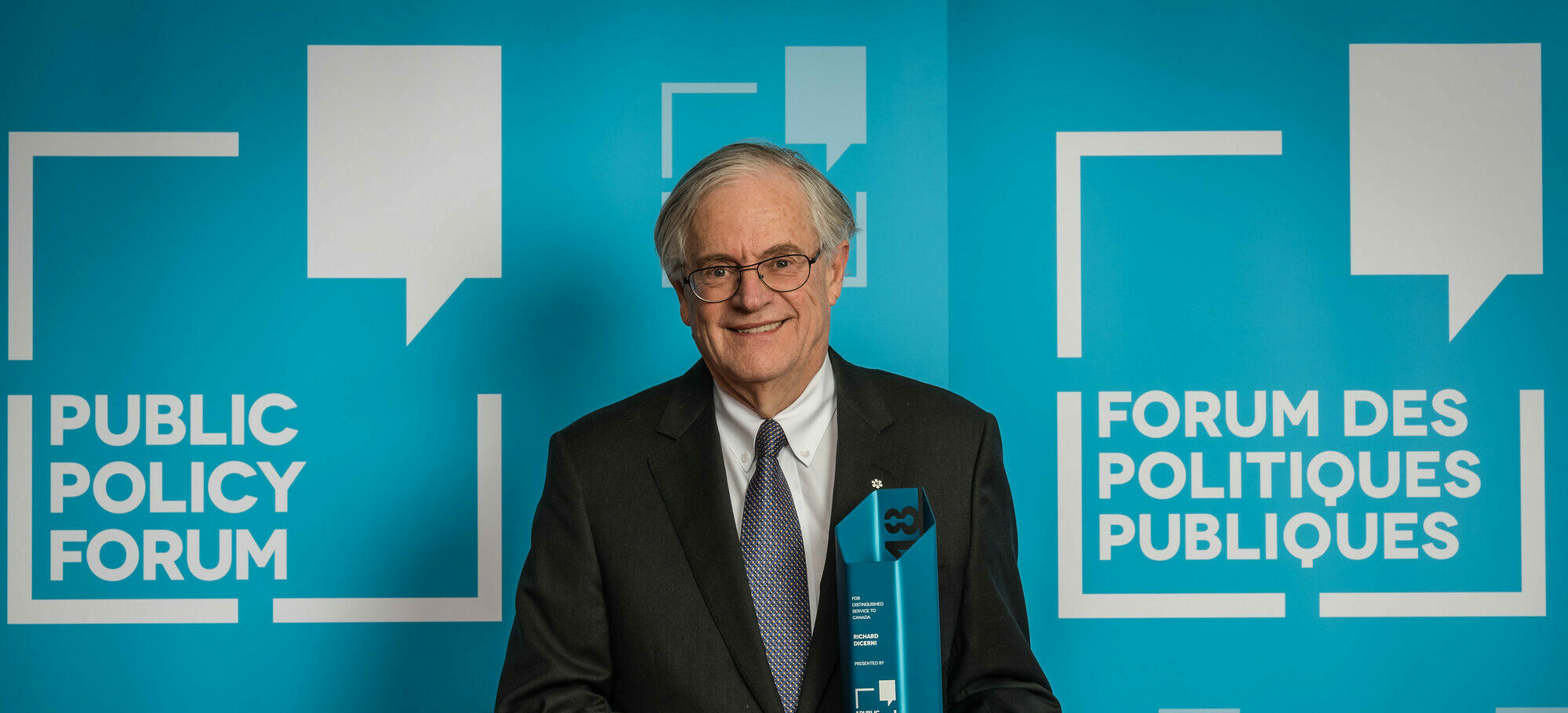
Wisdom, sagacity set veteran public servant Richard Dicerni apart
Richard Dicerni (1949 – 2023)
Richard Dicerni personified everything that’s right about public service and the Public Service. He was strategic, informed, publicly interested, proportionate, future-oriented and wise – it was his wisdom and sagacity that truly set him apart. Among the professionals who earn their keep across this country by giving cabinet ministers their best advice on policy, programs and governance, Richard was the one to whom they turned for their own advice.
He knew the country as few others. He knew its classic two solitudes, and in both official languages. He knew it from the perspective of a long-time federal public servant and an occasional provincial one. He knew it from inside Ontario decision-making and Alberta decision-making. He knew it from having worked in social portfolios (Education, Health and Welfare) and in economic ones (Energy and Industry). In 2014, he was persuaded by one of his former federal ministers, Jim Prentice, to go west and take on the job as the top public servant in Alberta. Incredibly for anyone else but Richard, he then was asked to stay on when New Democrat Rachel Notley ended 44 years of Progressive Conservative rule in the 2015 election. Decades in the wilderness can breed skepticism and suspicion. Premier Notley found comfort in the professional public servant who had been enticed to Alberta by her predecessor.
I had an interesting window into their relationship at a hotel bar in New York City in Sept. 2015. My employer, Bloomberg News, was putting on a financial conference and I was set to interview Premier Notley on stage the following day.
While Richard and two of her political advisors sat by, the Premier told me not once but twice how she had assembled the first gender-parity cabinet in Canadian history. On the second mention, I reminded her that she wasn’t the first – that Jean Charest had done so in 2007.
Premier Notley said that can’t be true, “right Richard?” He knew he had to deliver an unwelcome message. Looking suitably grave, for which he had a particular talent, and sounding just a touch sardonic, another natural skill, he intoned, “Yes, it can.”
In recent years, he compromised on his retirement by chairing such important bodies as the RCMP civilian oversight committee and the Ontario Energy Board. He taught at Western University. He mentored everywhere.
Richard was a treasured friend of the Public Policy Forum, including time on our Board of Directors. When we assumed responsibility for the Action Canada program in 2017, Richard signed up to chair the advisory committee. As was typical, he did the work. He participated in the selection process and joined the Action Canada Fellows for some of their visits across the country.
In 2018, Richard was named to PPF’s Honour Roll – the exclusive club of 138 people celebrated at our Annual Testimonial Dinner over the past three decades for their contributions to public service, public policy and public leadership. He spoke that evening about his family, his colleagues and “those individuals willing to stand for office,” who he hailed as “the major ingredient that makes democracy work.”
Concerned over the past several months about a breakdown of civility and respect in House of Commons committee hearings, particularly in questioning of public servants, he reached out to see if PPF might be part of a collaboration “to give more prominence to the issue of witness badgering, smearing and calumniating.” He had appeared as a witness before Parliamentary committees 25 times in his career, he told me, but had become appalled that hearings had degenerated to the point where public servants were being called “inept,” “incompetent,” “naïve,” “embarrassing,” and “completely and ridiculously unprepared” — before even being asked a question. This offended his sense of propriety, to be sure, but more fundamentally threatened the special and delicate balance between officeholders and their more circumspect advisors that he held dear.
Being Richard, he had remedies in mind, which he passed along to various interested parties, including the Speaker of the House of Commons.
“This is not fair,” he commented. “Nor is it Canadian.”
Rest in Peace, Richard. You will be sorely missed.
— Edward Greenspon, Public Policy Forum President and CEO





